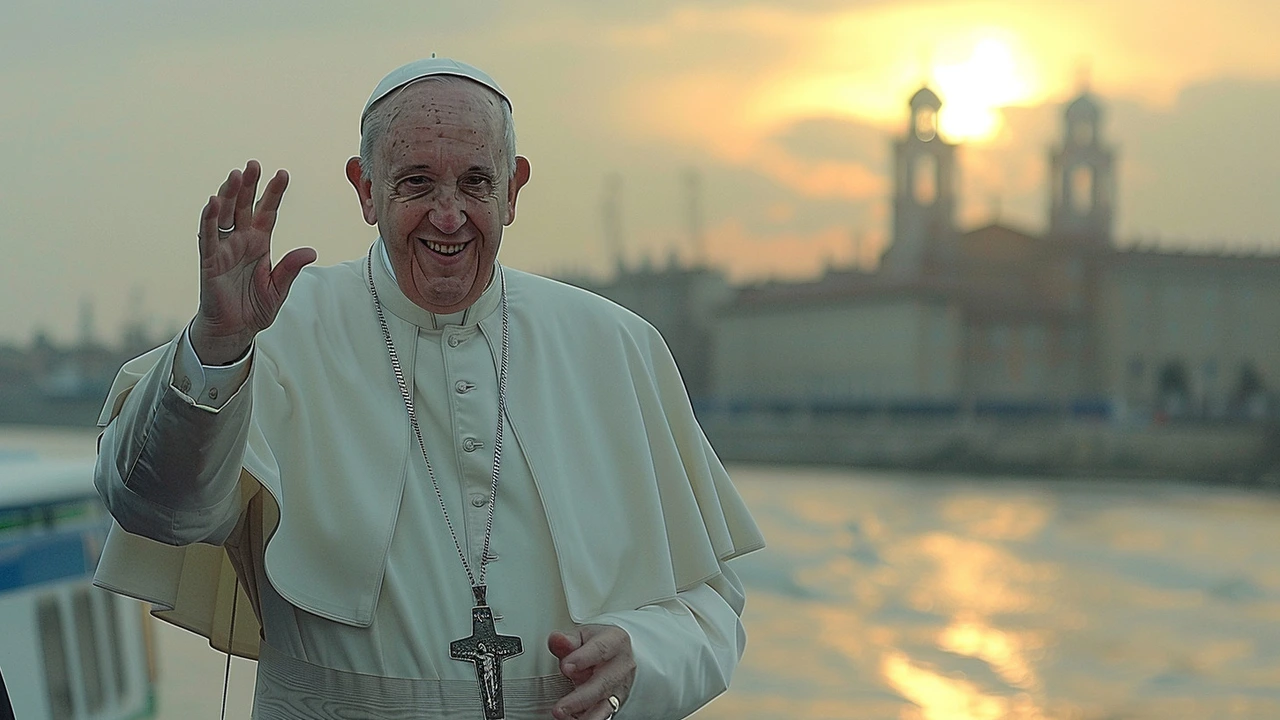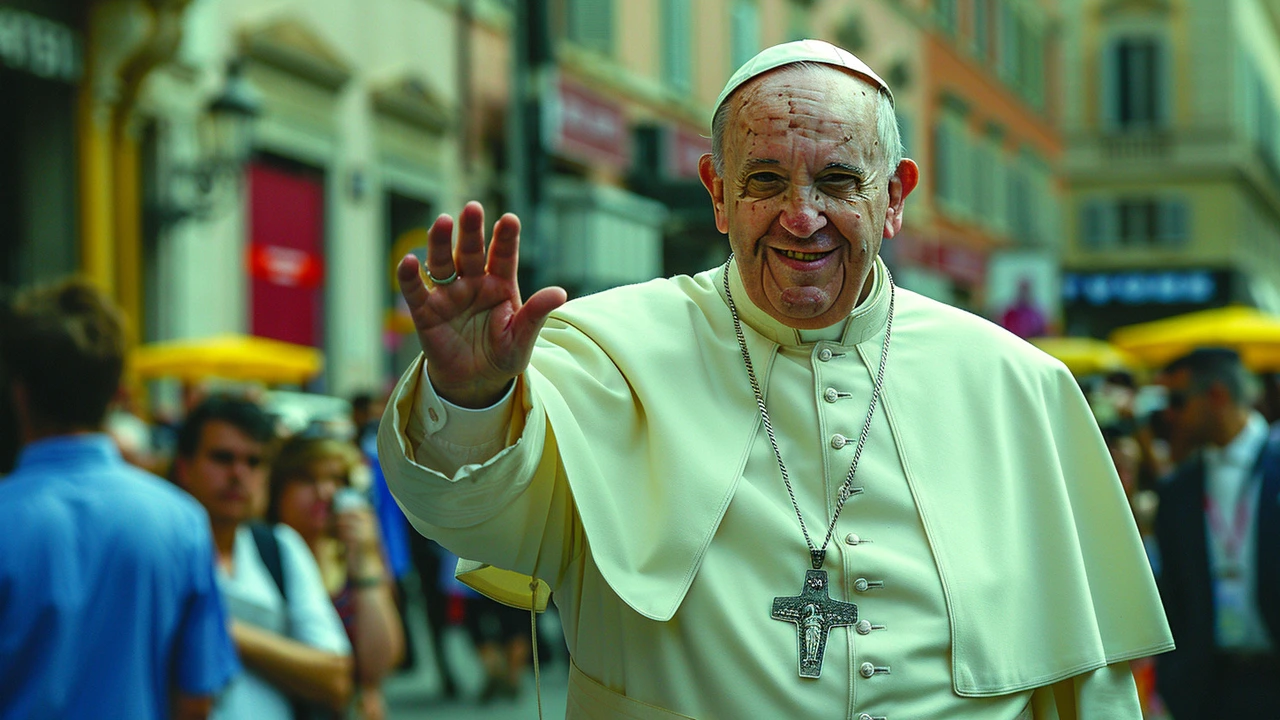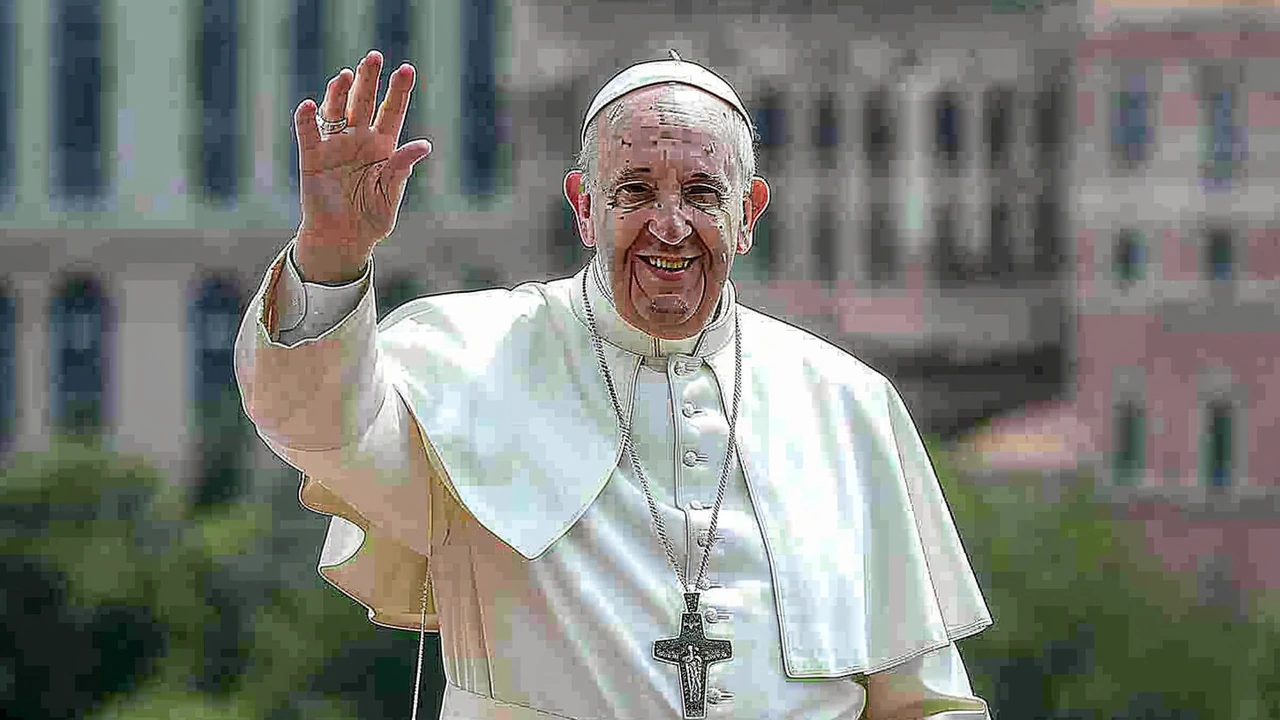Spanish Professor Brings Historic Pope Francis Interview to Global Audience with Precise Translation

Spanish Professor Brings Historic Pope Francis Interview to Global Audience with Precise Translation
In a remarkable achievement, Erik Camayd-Freixas, a professor of Spanish in the Department of Modern Languages at Florida International University's Steven J. Green School of International & Public Affairs, has translated a historic television interview with Pope Francis. The interview, which aired on CBS News, is noted for being the pontiff’s first extensive conversation with a United States television network during his 11-year papacy. It took place in the dignified and serene setting of Vatican City, adding to the interview's profound resonance.
Camayd-Freixas's role was pivotal in ensuring that the essence of Pope Francis's words reached a global audience. His translation work went far beyond mere linguistic conversion; it involved transcribing Spanish spoken by Pope Francis into English and translating English portions of the script back into Spanish. This dual-translation effort was aimed at enhancing accessibility for both English and Spanish-speaking audiences, thereby enlarging the interview’s impact and reach.
Camayd-Freixas’s Extensive Experience and Expertise
Professor Camayd-Freixas is no stranger to high-profile linguistic tasks. He has interpreted for more than ten heads of state, including significant figures like President George W. Bush and President Barack Obama. His portfolio also includes live interpreting for Pope Benedict XVI during two significant masses held in Washington, D.C., and New York. With such a rich background, it’s clear that his involvement was a key factor in maintaining the authenticity of Pope Francis's interview.
What sets Camayd-Freixas apart is his commitment to capturing the true tone and spirit of the original words. He emphasizes the intricate balance between literal translation and the conveyance of deeper meanings and emotional undertones. This skill is especially crucial when translating sensitive and significant conversations like those involving global figures such as Pope Francis.

The Significance of Translating Pope Francis’s Words
Pope Francis has been a transformative figure in modern Catholicism, known for his progressive stance on various social issues and his compassionate approach. This interview provided a rare glimpse into his thoughts, values, and vision, making it a significant event not only for Catholics but for individuals worldwide who are interested in global and spiritual leadership.
Camayd-Freixas’s translation made sure that the intricacies of Pope Francis's statements were not lost in translation. He ensured that the spiritual and cultural contexts were preserved, making the interview as profound in English as it was in the original Spanish. This requires a deep understanding of both languages, coupled with an insight into the cultural and emotional substance behind the words.
The Cultural Impact of the Interview
The reach of this translated interview cannot be overstated. It allowed millions who may not understand Spanish to participate in a dialogue with one of the most influential spiritual leaders of our time. The interview touched on various sensitive and profound subjects that are central to current global discourse, such as the role of religion in modern society, social justice, and the environment, among others.
By translating this interview, Camayd-Freixas played a crucial role in bridging cultural and linguistic divides. His work allowed for a broader understanding and appreciation of Pope Francis's message, which can potentially influence positive changes in individuals and societies alike.

Camayd-Freixas’s Future Endeavors
In addition to his translation work, Camayd-Freixas is also an accomplished author. He is currently working on a book titled ‘Metagrammar: Critical Thinking and Problem Solving in the Age of Artificial Intelligence’. This upcoming work seeks to explore the grammatical logic underlying various aspects of life, promising to offer new insights into critical thinking and problem-solving in our increasingly digital and AI-driven world.
This book will likely draw from his extensive experience in translation and interpretation, combining linguistic dexterity with analytical sharpness. Given his track record, it is highly anticipated in academic and intellectual circles as a significant contribution to contemporary discourse on language, logic, and artificial intelligence.
As we consider the impact of Camayd-Freixas’s work on the global stage, it becomes clear that his dedication to precise and emotionally resonant translation has far-reaching effects. His work with Pope Francis's interview is just one example of how effective translation can foster global connections and enrich our collective understanding.
Translation: A Bridge Across Cultures
This historic interview between Pope Francis and CBS News, translated by Erik Camayd-Freixas, serves as a reminder of the importance of translation in today’s interconnected world. In a time when communication transcends borders and languages, the role of translators like Camayd-Freixas is indispensable. They are the unsung heroes who ensure that vital conversations are accessible to all, nurturing a global community bound by shared knowledge and understanding.
Through his meticulous and passionate work, Camayd-Freixas has not only brought Pope Francis's messages to a wider audience but has also underscored the profound impact that careful and thoughtful translation can have on global dialogues. His efforts remind us that while language can be a barrier, it can also be a bridge that brings the world closer together.
In the grand tapestry of global communication, the threads woven by translators like Camayd-Freixas are integral to creating a cohesive and understanding world. As we look forward to his future contributions, including his innovative book on metagrammar, it’s clear that his work will continue to influence and inspire, making significant strides in both the fields of translation and critical thinking.